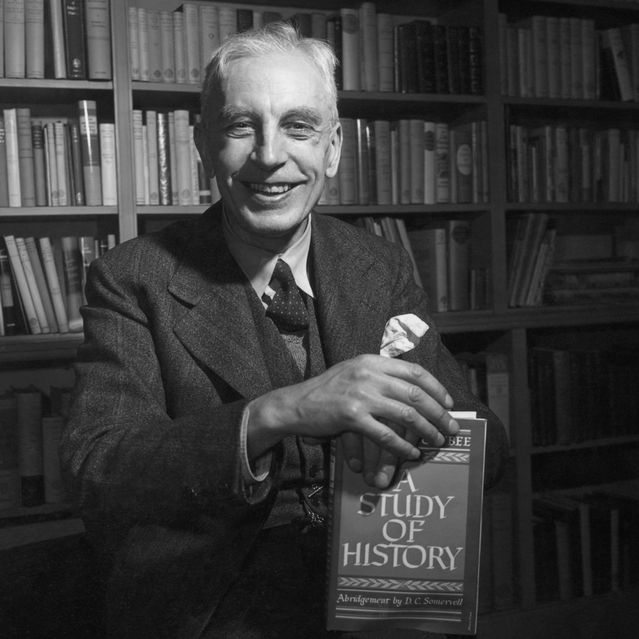What would a historian in 2123 make of the war in Ukraine? This is the sort of question that the great British historian of civilization
Arnold Toynbee
was fond of asking.
In a 1916 essay titled “British View of the Ukrainian Question,” Toynbee foresaw that Russia and Ukraine would assert their “separate individuality till the end of history.” Then, as now, Europe was at war, and the outcome was unknowable. But Toynbee sought to distill the probable from the ambiguous. And so, following Toynbee, even with the Ukraine war’s ending shrouded in mist, several preliminary conclusions can be ventured.
Arnold Toynbee (1889-1975)
Photo:
FPG/Archive Photos/Getty Images
First, our future historian would note that Russia’s invasion has reified Ukrainian nationhood.
assertion that the Russians and Ukrainians constitute “one people” has been rebutted in blood. Also swept away is
Samuel Huntington’s
characterization of Ukraine as a “cleft” country, divided internally and suspended civilizationally between Russia and the West. This was a plausible description in the 1990s, but the same conditions no longer endure. Millions of Ukraine’s Russian-speakers are learning the Ukrainian language, supporting the war effort, and spying behind enemy lines. Many Ukrainians chose to celebrate Christmas on Dec. 25, rather than the Russian Orthodox Jan. 7. To adapt
Charles Tilly’s
famous line about the state: War is making the nation, and the nation is making war.
This brings us to the historian’s second observation: As a result of the war, Russia is increasingly bordered by the West. Toynbee viewed Russian civilization as “a sister society, of the same Graeco-Roman parentage as ours,” but one that had “always put up a strong resistance against threats of being overwhelmed by our Western world.” Now, with formerly neutral Finland (along with Sweden) joining…
Click Here to Read the Full Original Article at RSSOpinion…

